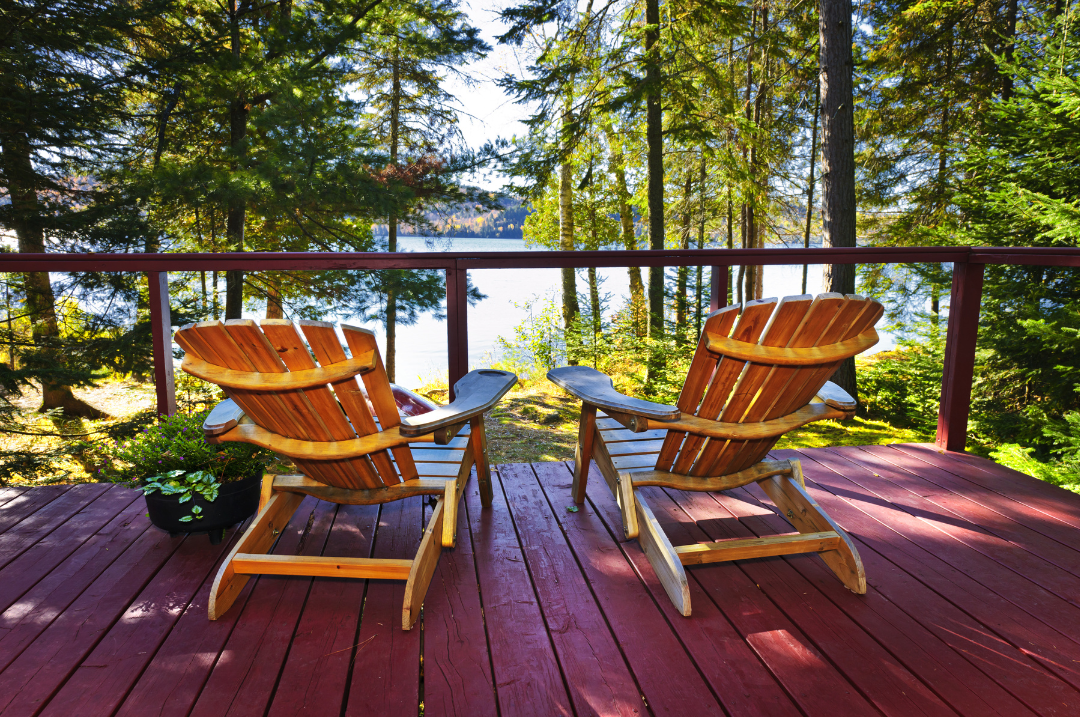If you’re considering buying a cottage in Canada and have been watching the market, you already know this market segment has seen a surge in competition between buyers over the last decade. In recent years, cabins and cottages have been in high demand, as interest in renting out personal properties for extra income has become more accessible through various online platforms.
While purchasing a cottage as a recreational property or even as a year-round home can be an excellent investment in both the short and long term, there are some important factors to consider during your hunt for the perfect getaway home. Below we break down five important factors to consider when purchasing a recreational property
5 Factors to Consider When Buying a Cottage
Year-Round Maintenance Requirements
Before purchasing your getaway home, it is crucial to have a thorough evaluation to ensure the home is weather-proofed for the summer and winter months. When considering year-round maintenance, key considerations include checking out the age of the roof, doors and windows. You’ll also want to confirm the level of insulation, including under the floors.
Cottage roofs typically undergo a lot of strain in the winter months as snow, ice and other debris accumulate over time. In addition, the age of the doors and windows is important because you don’t want to have any cracks or openings where animals or the elements can enter the cottage. If you aren’t planning on visiting your cottage to complete regular maintenance during the winter, having the roof, doors and windows in good condition can save you money and work come springtime.
In addition to the actual structural requirements, it is essential to familiarize yourself with the local by-laws for winter snow removal. Some regions have rules that state a pathway must always be cleared during the winter months. After reading up on the local by-laws, it might be worth the investment to find someone to check in on your cottage and clear away any snow, ice, or debris in your offseason should you live a far distance away.
Plumbing
Piggybacking on the year-round maintenance requirements is being aware of the type of plumbing the cottage has – or even if it has plumbing at all! When looking at cottages for sale, make a list of important amenities, such as having indoor plumbing. Many cottages don’t have indoor plumbing, equipped only with an outhouse. In addition, many properties in recreational markets run on a septic system which requires a different amount of maintenance, care and attention year-round.

Ease of Access
A cottage can be a great investment; however, location does play a significant role in whether it may generate rental income, as well as the times of year you visit your vacation home. A property that is only accessible by water will probably just be used as a summer home – and in this case, you’ll need to consider the price of purchasing a boat when buying a cottage located on an island.
Some properties in very rural areas may be accessible by car but might not have winter access as many backcountry roads are not maintained in the winter months.
Also, location when it comes to distance from amenities is important to consider. Many cottages are in very rural parts of the country, meaning the drive to a grocery store or gas station could be significant.
Before investing in a secondary residence, ease of access and location regarding other amenities are key factors to consider.
Rental Potential and Rules Surrounding Renting
Cottage homes can be an excellent investment if you also choose to use them to produce rental income. When purchasing a cottage as a rental property, key amenities are the number of bedrooms and bathrooms, ease of access, and location.
Suppose the idea of renting is your main driving force behind buying a recreational property. In that case, it is strongly advised that you review the rules and regulations regarding renting out seasonal property and learn your way around the different web platforms available for renting, such as Airbnb.

Taxes and Capital Gains
A cottage is known as a personal-use property, which means there are different tax implications. If the property is used solely as personal recreational property, there are other tax rules than if you decide to rent out your cottage. In addition, upon sale of the cottage, you will be responsible for paying taxes on any capital gain of the property.
Before making any significant financial decision and purchasing a property, it is essential to consider both your financial situation and your needs and wants in the property. Reaching out to a professional for advice is always a wise first step!
Courtesy: remax.ca


Leave A Comment